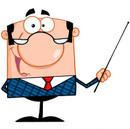
√ После till/until/before/as soon as/the moment.
√ После after/when.
√ Со словами hardly / scarcely… when/ No sooner…than.
Образуется при помощи had + V3 или -ed (правильные глаголы)
| Утвердительнoе | Отрицательнoе | Вопросительнoе |
| I had walked/gone . | I had not walked/gone | Had I walked/gone ? |
| He had walked/gone She had walked/gone It had walked/gone |
He had not walked/gone She had not walked/gone It had not walked/gone |
Had he walked/gone ? Had she walked/gone ? Had it walked/gone ? |
| We had walked/gone You had walked/gone They had walked/gone |
We had not walked/gone You had not walked/gone They had not walked/gone |
Had we walked/gone ? Had you walked/gone ? Had they walked/gone ? |
1) Действие совершилось раньше другого
Past Perfect употребляется, когда одно действие совершилось раньше другого:
When Ilia came to his summer house, Olga and her friends had gone home already.
They had been the soldiers for two years before I met them
The old oak trees, which had stood in the park for 200 years before the park was build
2) После till/until/before/as soon as/the moment.
Till/until/before/as soon as/the moment/immediately + had worked + Past simple.
Показывает, чтобы подчеркнуть действие, которое совершилось или предполагалось, что совершилось раньше другого действие.
My family didn"t want to go anywhere till our cousin had phoned them.
Before he showed up we had done some shopping.
3) После after/when обычно следует Past Perfect:
After he had presented his speech we started to ask him some questions.
After/when she had done Vialetta showed up.
4) Со словами hardly / scarcely… when/ No sooner…than.
Hardly / scarcely… when
No sooner…than
The concert had hardly started when the singers showed up at the stage.
Если предложение начинается: hardly/scarcely …when идете, инверсия вспомогательный глагол ставится пред главным существительным (как в вопросительном предложении)
Слова определители:
By-к
Before-перед тем как
